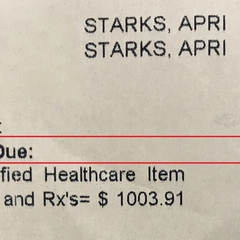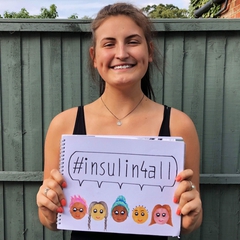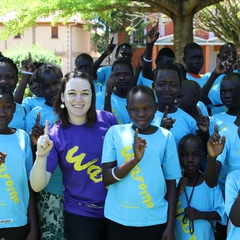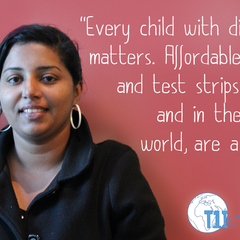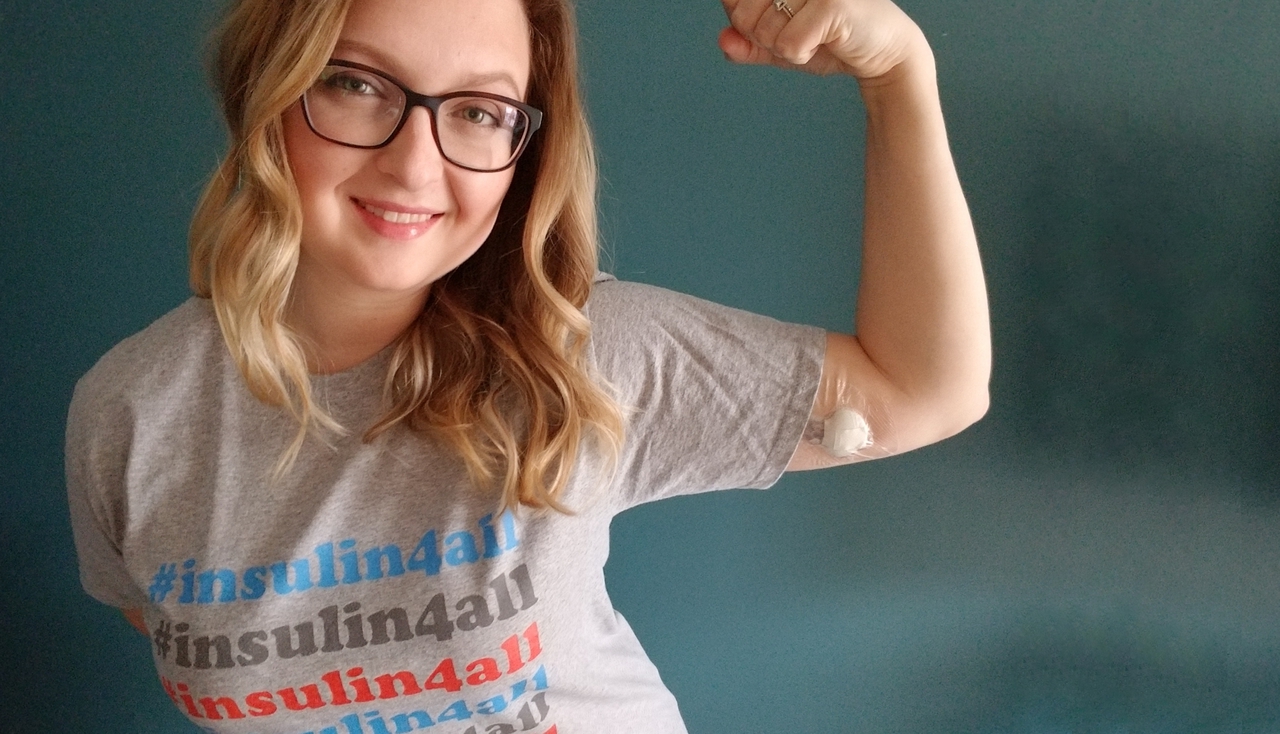
Finding Hope, Despite Fear
3 Jan 2019, 3:55 p.m. in #insulin4all USA by Stephanie Heckler
I was diagnosed with Type 1 Diabetes (T1D) in 2011 during my time in graduate school for nursing. I had been healthy my entire life. I was starting on a new journey, learning to care for others. Suddenly, I needed to learn to care for myself.
I thought I knew about T1D. I learned about the condition in nursing school. I quickly found out I knew nothing at all – that it’s so much more complicated than taking insulin at meals. It's estimating when and what you’re going to eat, how much you'll eat, counting carbs, calculating your insulin based on your carb ratio, and hoping you guessed correctly. It’s walking the tightrope of trying to prevent high and low blood sugars, both of which can be deadly, and attempting to manage the endless factors that can impact blood sugar levels. I wondered how on earth I managed to keep my patients alive when I was struggling to keep myself alive.
I’m not proud of it, but after my diagnosis, I shut down. I didn’t want to discuss it because it made me feel different and alone. I was meant to be the caregiver, not the patient. Some people took pity on me, some started to worry about me, but I kept saying I could take care of myself. Some asked ignorant questions – even healthcare providers – and I didn't want to have to explain myself. I admit that I still have trouble accepting it, but I’m working on that.
Being diagnosed in my early 20s meant that I was on my parents’ insurance. At the time, my father had fantastic insurance. I didn’t pay a penny for the medication that kept me alive daily, and I didn’t think twice about it. Life-sustaining medication naturally felt like something you shouldn’t have to pay a lot for.
When my dad got a new job and new insurance, things changed. I was still privileged to have access to insurance. In hindsight, it was pretty good insurance, but as a poor college student suddenly paying $50 a month for insulin, the change was crushing. Here I was with a condition I didn’t cause, didn’t want, could barely cope with, and now I was being asked to pay to stay alive. It felt incredibly unfair.
I started to investigate insulin costs and I realized that I was one of the lucky ones. Other people were being charged $300 a vial. I use about three vials a month, so at that cost it would be $900 a month, nearly $11,000 a year. In 2016, the US Census Bureau estimated that the average American earns $31,000. How can the average person afford housing and food, and support a family if 1/3 of their income goes toward insulin?
I know I’m not alone when I say that I live in constant fear of being in that situation. Currently, I’m lucky to pay very little for my insulin and pump/ CGM supplies. But I fear that one day my insurance will change, my husband will find a new job with different insurance, or pharmaceutical companies will raise the price of insulin to the point that insurance will no longer cover it. I fear that one day I'll be the person spending 1/3 of their income on insulin – that I'll need to ration my insulin to make it to my next paycheck, like an estimated 25% of us with T1D do. I fear I may become one of the needless deaths related to the high cost of insulin, like Alec Smith and Antavia Lee-Worsham; young, vibrant lives taken before their time for no good reason.
My fear is why I fight. It's why I've picked up with mantle with T1International. I shouldn't have to fear being unable to afford my medication. This is a global issue. Every person with T1D worldwide has a basic human right to insulin. Pushing it out of our reach is a violation of those rights – plain and simple.
Volunteering for T1International was my greatest accomplishment in 2018. It has been therapeutic in accepting my diagnosis, even if it is 7 years late. Advocating for myself and those like me is healing. Sure, there are days when I want to cry, especially when seeing Nicole Smith-Holt and Antroinette Worsham bring the ashes of their children to Eli Lilly. There are also the days when hope swells in my chest.
Hope swells when advocates are interviewed on The Today Show and NPR, or when research studies bring light to the increase in insulin rationing, and when celebrities like Ron Howard retweet to boost our cause. Despite all these fears I carry around, I'm able to set them down at the end of the day, knowing that I'm doing my part, however small, to raise awareness and fight for change. I look forward to spending 2019, and many years to come, advocating for insulin for all.




